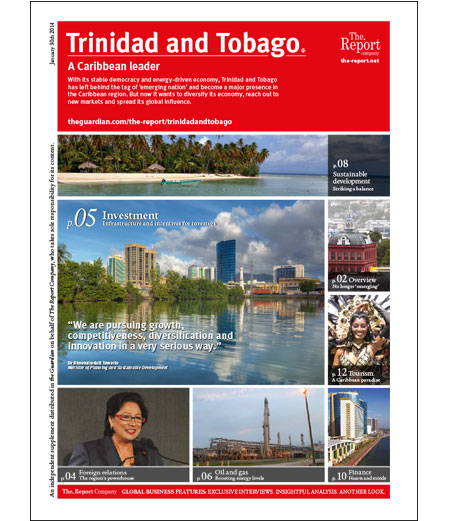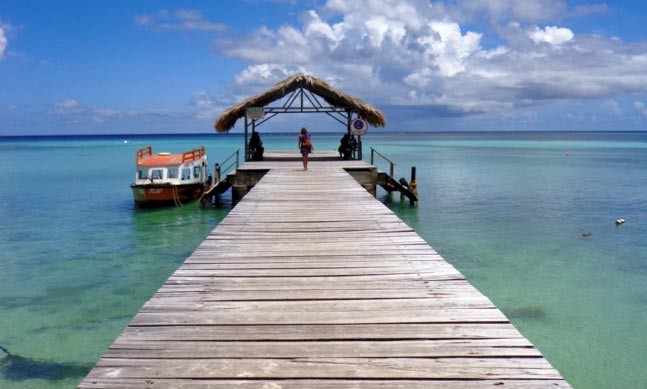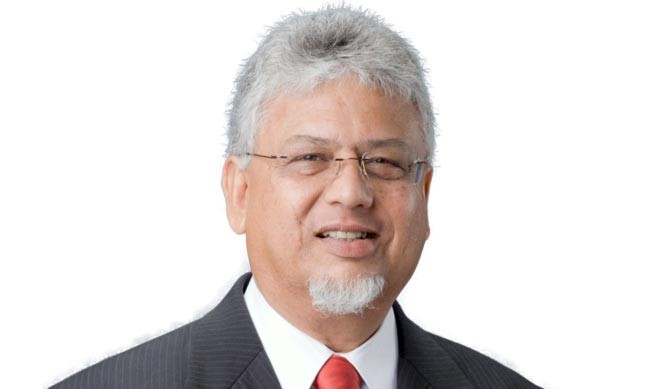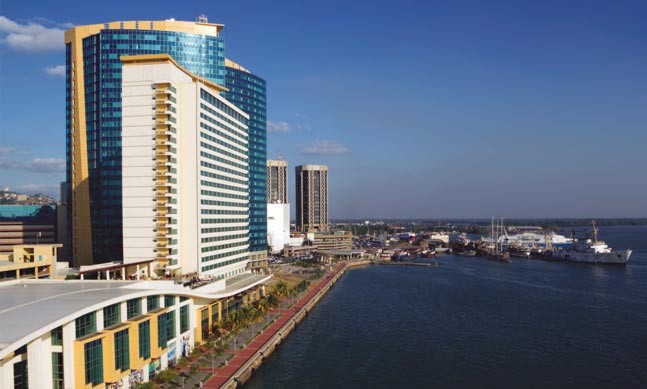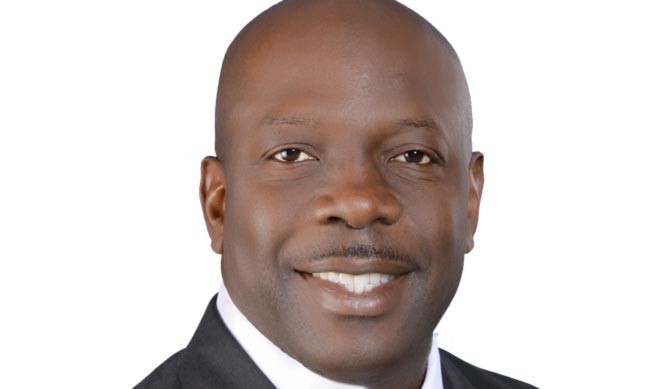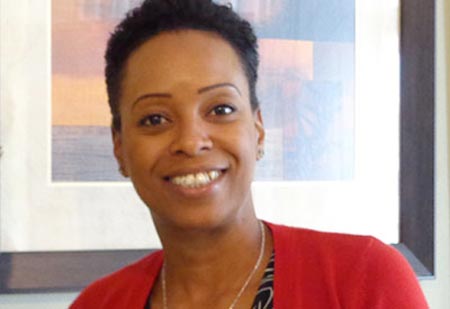
Gillian Wall is the founder and visionary behind IBB Global, which offers business solutions both regionally and internationally. With eight international partners and six business lines, including organisation development, leadership development, service culture, strategic HR services, lifestyles and financial coaching, her stated aim is to change the world one relationship at a time. She spoke to The Report Company about her vision, drive and the challenges faced by female entrepreneurs in Trinidad and Tobago.
The Report Company: What has been the strategy that has allowed you to achieve the success you have?
Gillian Wall: It’s the passion for the sustainable development of Trinidad and Tobago, the elevation of the minds of the people that we interact with, getting them to see this vision. It’s really the ability to draw from our clients their vision and partner with them to help them realise that which has helped us to continue. Our success is our clients’ success so as we keep people envisioning and dreaming so too do we. Our purpose simply is to change the world – one paradigm at a time, one relationship at a time, one community at a time.
We focus on business performance improvement. We are here to help our clients achieve their success and as long as we do that, the business continues. One of the really large clients that we did feel the impact of was the collapse of the CL Financial group during the subprime mortgage crisis. They used to do millions with us every year, so we did feel that. We also we felt the impact of the change in the oil and gas industry. Three major players, BP, BG and BHP Billiton, all downsized within about a year and a half and that resulted in a turnover of over 700 employees across those three organisations.
What keeps IBB going is my passion. I’m in it for the long haul. I love what I do and I continue to move just like everyone else in business. I expand and shrink based on what’s happening within the economy and because of our structure of partners and consultants across the globe it makes it very easy to shrink and expand. That is one of the things that hurts many companies; they don’t make those decisions fast enough, they don’t want to say goodbye to people or revisit compensation packages. They don’t see multiple options; they see doom and gloom. One of the mantras that we got our clients repeating over and over during the course of the recession was that they had decided not to participate in the global recession. Then they could focus on what they’d got to do to, which was to create a successful vision and a model that allows you to shrink and expand.
I would like IBB Global to remain long after my lifetime because what we are doing is to impact generations long after I’m gone.
“Trinidad is a very challenging market because of the thinking and the political climate. We have to work on our service culture; we’ve got to work on our educational system.”Tweet This
TRC: How do you leverage on your partnerships and what plans do you have to expand on them?
GW: All these are independent partnerships and their interest in doing business with us is to grow their own organisations. It is a win-win relationship. We have been looking at our partnerships and at the opportunities to provide in-house facilitators to provide our clients with learning and development packages, so that’s one of the things we started to look at in terms of retail and merchandising. We have quite a few products and services that you don’t need a consultant to deliver and we are looking at how we expand that in the interests of our clientele.
We want to officially launch the first dynamic retail outlet that approaches learning and development in a very different way. I’m conscious of what is happening in the economy so there may not be for all of our eight partners huge multimillion dollar change management projects. We’ve now got to find a way to do that level of business through volume.
Another key strategy in terms of healthy partnership is keeping abreast of what is happening in terms of tax incentives. In February 2012 the training allowance was reinstated, which means companies get a government incentive to develop their people. This actually means companies can develop a strategy to earn more money by investing in people because they can claim back up to 150 percent. So you make this investment and you get all of it back plus 50 percent of what you spend to invest in your next year. It’s a brilliant opportunity to engage people in transforming the nation through training but it hasn’t been very well marketed.
TRC: How do you approach international clients?
GW: Through the partners. This means we don’t have to worry about setting up the business as if you want to work in a different market we work through those partners.
TRC: As an entrepreneur, how do you appraise the ease of doing business in Trinidad and Tobago and what reforms would you suggest?
GW: One thing that holds us back is our competitiveness. We’re rated very low for the ease of doing business. We’re not a very service-oriented culture. We are a friendly people but our service is horrible. Trinidad is a very challenging market because of the thinking and the political climate. We have to work on our service culture; we’ve got to work on our educational system. We are not yet breeding the type of individuals required to take this country forward; individuals capable critical thinking, visionary individuals who can form their own opinions. People who are passionate and have a vision and can leverage their strengths and their talents.
“We are rich in oil and gas so it means that we are an economy that is strong from that perspective. We have a very dynamic, diverse culture in terms of the varied ethnic groups and background so that brings the view of the world operating in one place.”Tweet This
TRC: How would you like Trinidad and Tobago to be perceived internationally?
GW: I don’t see Trinidad as it is now. What keeps me going is what I believe we can be and who we truly are. We are rich in oil and gas so it means that we are an economy that is strong from that perspective. We have a very dynamic, diverse culture in terms of the varied ethnic groups and background so that brings the view of the world operating in one place.
I want the international community to think about our resource wealth, I want them to think about the ethnic diversity and our talents, strengths and skills. I want them to think about our ability to cope under challenging situations. We are brilliantly located; Trinidad and Tobago is the gateway to the Americas. It has this nice balance of both the commercial side and the tourist destination. These are the things that we should be marketing; that’s who we are, this is what we offer. Our children are bright, passionate, dynamic and brave. If you take a Trinidadian and you plant them anywhere in the world they stand out. When you look at our ethnic makeup you have the largest populations being of African and Indian origin. When you look at Africans and Indians everywhere else in the western world they are the minority where they reside and they are victimised and experience racism. Our people have not experienced that. They are the majority.
We also speak English so when you bring all of this together, I want the world to see that a very tiny island can become a powerful hub and we’re so well-placed to help the west interact with the rest of the world.
TRC: How would you define the role of women within society in Trinidad and Tobago?
GW: The female is a nurturer. Women are bred to multi-task and to deal with multiple issues and take on more responsibility. Men are not. When you look at what is happening in the world, the challenges that we face and the changes in the current generation, what is needed is for women to step up and become more integral to the framing and shaping of where Trinidad goes. Women need to start nurturing and taking responsibility; mothering our land the same way that we would mother our children. If all females are trying to compete with the male and be the male we lose our perspective.


